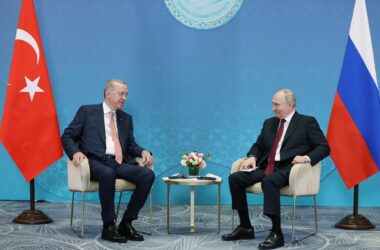Mikheil Kavelashvili, former soccer star, was sworn in as Georgia’s new president on Sunday, solidifying the power of the ruling Georgian Dream party.
His inauguration has sparked controversy, with critics accusing the move of undermining Georgia’s European Union ambitions and fueling concerns about the country’s political future.
Outgoing pro-Western President Salome Zourabichvili harshly criticized Kavelashvili’s swearing-in, calling it a “parody” and insisting that she remained the legitimate leader. Zourabichvili, who left the Orbeliani Palace, emphasized that the building was only symbolic as long as it housed a legitimate president, and demanded new elections.
Kavelashvili, 53, ran uncontested in December’s election, winning easily due to the dominance of the Georgian Dream party in the electoral college, which replaced direct presidential elections in 2017. The college, which includes members of Parliament, municipal councils, and regional legislatures, secured Kavelashvili’s victory.
In his inaugural address, Kavelashvili promised to serve all citizens and urged unity around shared values. However, the ceremony triggered protests outside Parliament, where demonstrators waved red cards to express their disapproval of the new president. “Because today our president is a footballer, we are showing him a red card. The next step will be sending him off the pitch,” said protester Sofia Shamanidi.
Critics, including many opposition members, accuse Georgian Dream of being authoritarian and having pro-Russian tendencies, despite the party’s denial. Tensions have increased due to controversial laws that critics argue limit free speech and suppress dissent. Kavelashvili, a former Premier League striker for Manchester City, co-founded the anti-Western People’s Power movement and was involved in the controversial “foreign influence” law, which led to EU funding cuts and delayed Georgia’s EU accession process.
Zourabichvili, who won her 2018 presidency with Georgian Dream’s backing, has now called for fresh elections to ensure that the people’s will is properly represented. “We are not demanding a revolution,” she stated, “We are asking for new elections in conditions that ensure the will of the people will not be misrepresented or stolen again.”
The Georgian government’s crackdown on protests has drawn criticism from the United States and European Union, who have condemned police violence, media suppression, and other measures used to stifle opposition.




